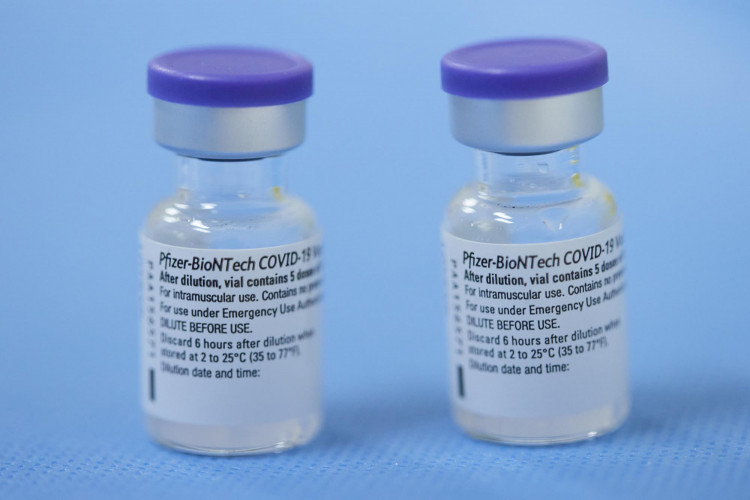Pfizer-BioNTech submitted an authorization request to Health Canada on Monday for the use of its COVID-19 vaccine in children aged 5 to 11.
Providers will be able to begin administering the COVID-19 shot, now called Comirnaty, to children as soon as the regulator provides the go-ahead, however, new child-sized doses may be required.
The doses are roughly one-third of those given to adults and adolescents aged 12 and higher.
The proposal for approval is based on results from trials involving 2,268 children in this age group, for whom the dose was reduced to 10 micrograms per injection, which is three times lower than the usual dose and, according to the company, "the preferred dose" for children aged 5 to 11.
In Canada, the same Pfizer-BioNTech vaccination is authorized for those aged 12 and up.
According to Health Canada, the vaccine will only be approved for use if an independent and rigorous scientific examination of all data submitted demonstrates that the benefits outweigh the dangers in this population.
Last spring, Canada renewed its contract with Pfizer for pediatric doses.
The proposal for approval is based on results from trials involving 2,268 children in this age group, for whom the dose was reduced to 10 micrograms per injection, which is three times lower than the usual dose and, according to the company, "the preferred dose" for children aged 5 to 11.
In Canada, the same Pfizer-BioNTech vaccination is authorized for those aged 12 and up.
Health Canada said the vaccine will only be approved for use if an independent and rigorous scientific examination of all data submitted demonstrates that the benefits outweigh the dangers in this population.
Last spring, Canada renewed its contract with Pfizer for pediatric doses.
"Health Canada will only authorize the use of Comirnaty if the independent and thorough scientific review of all the data included in the submission showed that the benefits of the vaccine outweighed the potential risks in this age group," the statement said.
Childhood immunisations are raising questions around the world. Many countries vaccinate adolescents from the age of 12, but very few do so below that age.
In recent months, the World Health Organization has insisted that the urgent issue was to immunise the population of poor countries before children and adolescents in rich countries.





